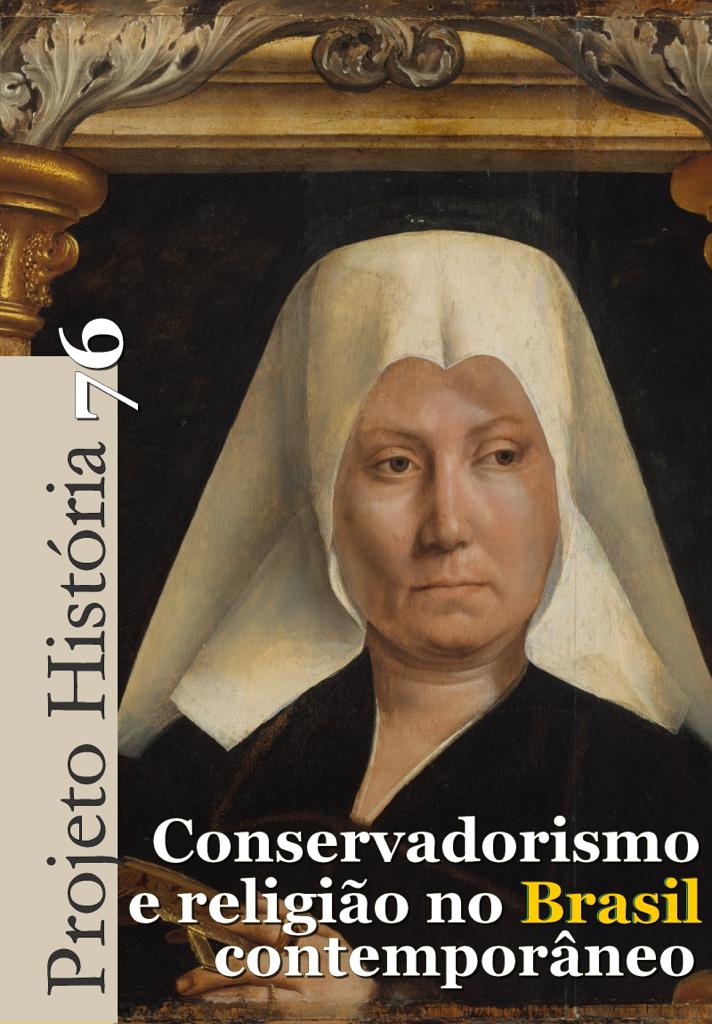Evangelical political representation
FM radios in Brazilian capitals
DOI:
https://doi.org/10.23925/2176-2767.2023v76p118-146Keywords:
Political Communication, Evangelicals, Coronelism, Media, Political RepresentationAbstract
The recent phenomenon of evangelical church sectors in the Brazilian political arena is composed of multiple variables and speaks out in the public space with polyphonic discourses. In this article, we researched the FM radios in the Brazilian capitals because we understood they display a significant sampling of those actors playing on the political, religious, and media stages. The category that expresses the political representation studied would be evangelical electronic coronelism. From this perspective, we do not ignore the religious identities that demand some morality in the public space. Still, we privileged the evangelical communication networks because of their institutional structures and political arrangements to try to analyze the object. The concept Cenário de Representação Política/Scenario of Political Representation (CR-P) served as theoretical support to think the evangelical electronic coronelism beyond a neologism. Researchers did empirical work in which the 82 members of the evangelical political caucus in the House of Representatives in its 56th legislative term (2019-2022) were monitored based on their connections with the evangelical communication networks. This way, the study designed the alleged representatives of the evangelical electronic coronelism as the leading roles in this plot. Besides identifying the personal performances of the members of the parliament, we had to characterize the communication networks to which they are directly responsive or formally bound. The members of the so-called evangelical caucus in the House of Representatives in its 56th legislative term, with a few exceptions, make use of and depend on, in good measure, the referred communication networks. That is the fundamental theoretical-methodological support of the concept Cenário de Representação Política (CR-P) in this qualitative research.
References
ABERT. Disponível em: http://www.abert.org.br. Acesso em: nov. 2021-mar. 2022.
ANATEL. Sistemas Interativos. Disponível em: https://sistemas.anatel.gov.br/sis/SistemasInterativos.asp. Acesso em: nov. 2021/mar. 2022.
AUSTIN, J. L. Quando dizer é fazer. Porto Alegre: Artes Médicas, 1990.
BOURDIEU, P. A economia das trocas simbólicas. São Paulo: Editora Perspectiva, 1999.
BOURDIEU, P. O poder simbólico. Rio de Janeiro: Bertrand Brasil, 2006.
BOURDIEU, P. Sobre a televisão. Rio de Janeiro: Jorge Zahar, 1997.
BRITTOS, V. C.; BOLAÑO, C. R. S. (org.). Rede Globo: 40 anos de poder e hegemonia. São Paulo: Paulus, 2005.
CÂMARA DOS DEPUTADOS. Bancada do Partido Republicano do Brasil, [s/d]a. Disponível em: https://www.camara.leg.br/deputados/bancada-atual. Acesso em: 31 maio 2022.
CÂMARA DOS DEPUTADOS. Frente Parlamentar Evangélica do Congresso Nacional, 17 abr. 2019. Disponível em: https://www.camara.leg.br/internet/deputado/frenteDetalhe.asp?id=54010. Acesso em: 7 maio 2022.
CÂMARA DOS DEPUTADOS. Quem são os deputados, [s/d]b. Disponível em: https://www.camara.leg.br/deputados/quem-sao. Acesso em: 7 maio 2022.
ELEIÇÕES 2018: bancada evangélica cresce na Câmara e no Senado. Departamento Intersindical de Assessoria Parlamentar (DIAP), 18 out. 2018. Disponível em: https://www.diap.org.br/index.php/noticias/noticias/88900-eleicoes-2018-bancada-evangelica-cresce-na-camara-e-no-senado. Acesso em: 23 maio 2022.
FIGUEREDO FILHO, V. Abuso de poder: político, econômico, teológico e simbólico. São Paulo: Fonte Editorial, 2017.
FIGUEREDO FILHO, V. A fraquejada de um país terrivelmente evangélico. Rio de Janeiro: Editora Telha, 2020.
FIGUEREDO FILHO, V. Coronelismo eletrônico evangélico. Rio de Janeiro: Publit, 2010.
FIGUEREDO FILHO, V. Entre o palanque e o púlpito: mídia, religião e política. São Paulo: Annablume, 2005.
FRESTON, P. Protestantes e política no Brasil: da Constituinte ao Impeachment. 1993. Tese (Doutorado em Sociologia) – Departamento de Ciências Sociais do Instituto de Filosofia e Ciências Humanas da Universidade Estadual de Campinas, Universidade Estadual de Campinas, 1993.
LEAL, V. N. Coronelismo, enxada e voto: o município e o regime representativo no Brasil. São Paulo: Editora Alfa-Ômega, 1975.
LIMA, V. A. de. Mídia: crise política e poder no Brasil. São Paulo: Editora Fundação Perseu Abramo, 2006.
LIMA, V. A. de. Mídia: teoria e política. São Paulo: Fundação Perseu Abramo, 2001.
MOTTER, P. A batalha invisível da Constituinte: interesses privados versus caráter público da radiodifusão no Brasil. 1994. Dissertação (Mestrado) – Departamento de Ciência Política e Relações Internacionais, Universidade de Brasília, 1994.
SANTOS, S.; CAPPARELLI, S. Coronelismo, radiodifusão e voto: a nova face de um velho conceito. In: BRITTOS, V. C.; BOLAÑO, C. R. S. (org.). Rede Globo: 40 anos de poder e hegemonia. São Paulo: Paulus, 2005. pp. 77-101.
SOBRE a rede. Rede Aleluia: família, força e fé, [s/d]. Disponível em: https://redealeluia.com.br/sobre-a-rede-3/.
THOMPSON, J. B. A mídia e a modernidade: uma teoria social da mídia. Petrópolis, RJ: Vozes, 1998.
THOMPSON, J. B. Ideologia e cultura moderna: teoria social crítica na era dos meios de comunicação de massa. Petrópolis, RJ: Vozes, 1995.
TUDORÁDIO.COM. Dials por Estados. Abert. Disponível em: http://www.abert.org.br . Acesso em: nov. 2021-mar. 2022.
Downloads
Published
How to Cite
Issue
Section
License
Copyright (c) 2023 Projeto História : Revista do Programa de Estudos Pós-Graduados de História

This work is licensed under a Creative Commons Attribution 4.0 International License.

Este obra está licenciado com uma Licença Creative Commons Atribuição 4.0 Internacional.




